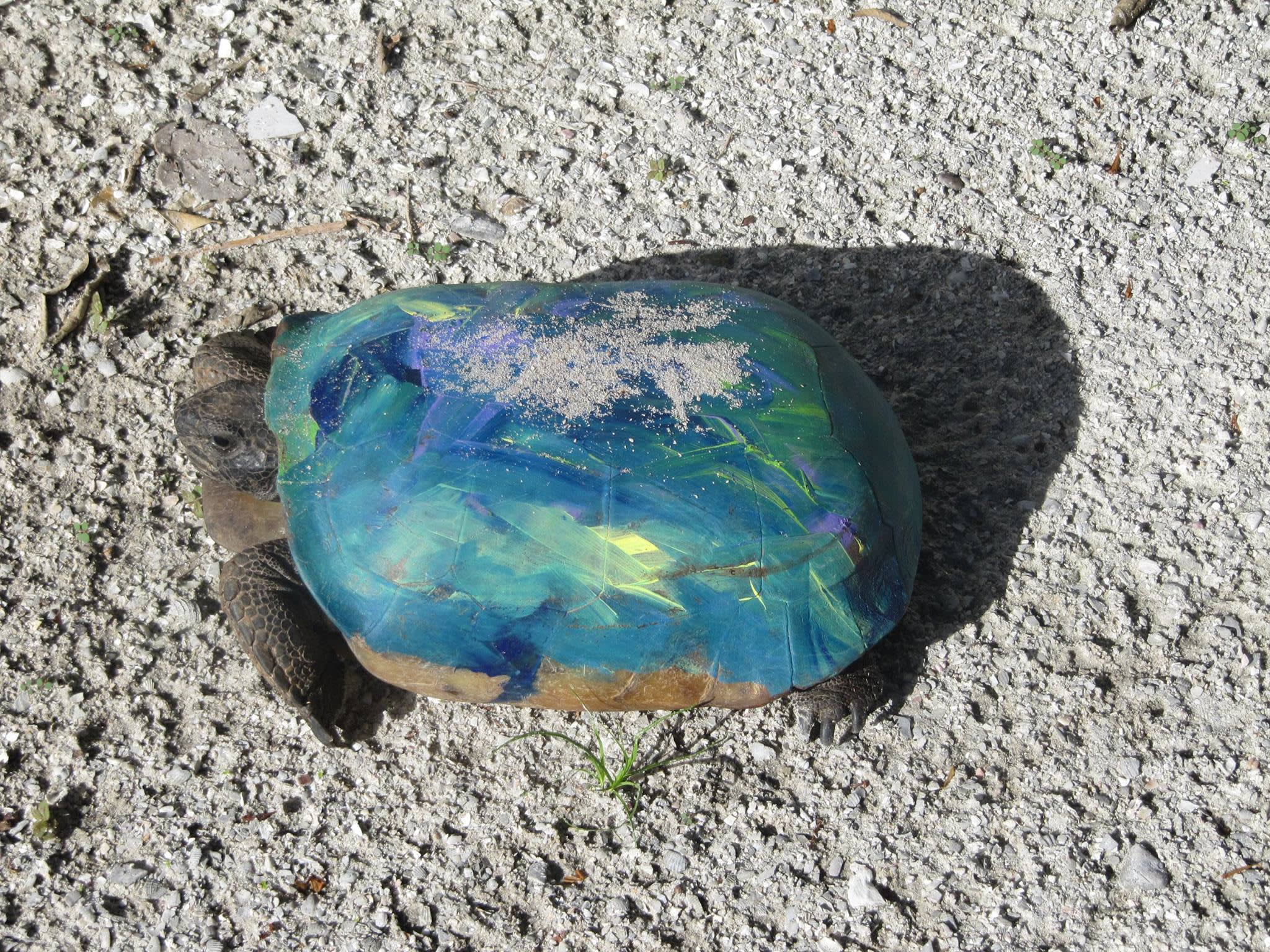Florida Officials: Please Stop Painting Our Turtles
OutdoorHub Reporters 08.01.16

It seems that painting live turtles and tortoises have become something of a fad in Florida, and officials are now making a stern warning to leave the animals alone. The Florida Fish and Wildlife Conservation Commission (FWC) made a statement last week urging residents to refrain from applying paint on wildlife—something that to most people, should be common sense.
“You can paint your house, a piece of furniture, a canvas, or even your own fingernails or toenails, but you should never paint the shells of turtles and gopher tortoises!” the Department stated. “While to you it may seem harmless, painting the shells of turtles and tortoises can severely compromise their health—the paint can hinder their ability to absorb vitamins they need from the sun, cause respiratory problems, allow toxic chemicals into the bloodstream and more.”
The reason for the public announcement is due to a number of reports the department received of painted turtles and tortoises in recent months. Apparently, the rogue artists have been using the reptiles as a traveling display.
“Some people we’ve seen have put phrases or sayings on the gopher tortoise shell whether it’s with a sharpie marker or some other kind of paint material,” Deborah Burr, the FWC’s Gopher Tortoise Program Coordinator. told WFSU.
It is, of course, illegal to paint wildlife in the state of Florida, but that doesn’t seem to stop people from doing it.
“You know, people think painting them is cute,” Burr added. “Maybe, it’s a canvass for some people, but it’s really harmful to the animal.”
This is especially true for gopher tortoises, which are a threatened species in Florida and already vulnerable due to their long maturity process. Notoriously, Florida wildlife officials have warned residents in the past from attempting to “rescue” the animals by putting them in water. Gopher tortoises nest in dunes next to water, but are poor swimmers and drown easily. Needless to say, it is one more reason why experts advise people against trying to “rescue” wildlife. It often does more harm than good.

